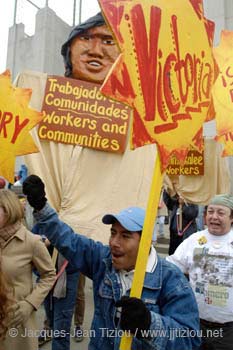Don’t turn your back on the Wolfpack
Before setting out, the team goes for dinner, and that’s where Palmer explains the mission of the Metropolitan Police Department’s saturation teams, or sat teams for short.
It’s an innovative, proactive approach to policing. Don’t handle calls for service. Leave that to the regular patrol cops. Talk to as many citizens as possible to find out who the bad guys are. Get people off the street who don’t belong, [sic] and maybe prevent a robbery or burglary, or worse, from happening.
We’re not worried about turning in tickets,he says.We’re trying to get the bad guys off the street.
Here are three things that you ought to know about how Metro decides who doesn’t belong,
and how they get the bad guys off the street.
First, cops in the saturation team
gangs pick and choose whether or not to come down on any given person who is breaking the law. They openly state that they make these decisions based on who they want to hassle and bust and pull off the street, and they openly state that they decide that based on where you’re from, how much money you make, and other proxies for racial and socio-economic status.
Sat team officers have to make constant judgment calls. They won’t pull over and arrest someone in Summerlin, for example, who doesn’t have bike reflectors. But if the area has seen a rash of burglaries, and the person on the bike has prior burglary convictions and doesn’t live there, they will. [Summerlin is a rich suburb of Las Vegas. –R.G.]
If you see a guy who jaywalks, and he’s a 42-year-old man who works at the Fremont casino and is heading home … shake his hand and let him go,Dixon said.If you stop a guy who jaywalks, and he’s a thug and he’s got a history of burglaries and he’s got a crack pipe in his pocket, you take him into jail.
Second, as you may have already guessed, if one of Metro’s sat gangs decides that you’re the sort of person they want to lock in a cage, rather than the sort of person they’ll shake hands with and let go, they will use any chickenshit charge they can make up in order to justify getting in your face, demanding that you explain yourself and justify your existence to them, and, if they aren’t satisfied, grabbing you off the street and throwing you in jail.
They use whatever laws are at their disposal: jaywalking, riding a bicycle without reflectors, outstanding warrants. They work together, swarming
hot spotsaround the valley.
They use whatever laws are at their disposal
because, of course, they don’t actually give a damn about the law. This is outcome-driven policing, and the law is just an excuse to bust the people that they’ve already decided don’t belong.
That’s because the purpose of these teams is not to stop or respond to crimes; it’s to control people, and in particular to force the the socio-economic cleansing of undesirable people from the cop-occupied neighborhoods. For exmple:
It’s past 9 p.m., and officer Robert Boehm turns down a street near the Cheyenne Pointe apartments. He sees an 18-year-old on a bicycle rolling through a stop sign on a residential street.
The young man looks familiar. It’s because Boehm and other sat team members busted him the week before for stealing a BB gun from a Kmart.
Boehm says that BB guns have been the weapon of choice for making drug-related robberies right now.
He was released from jail just a few days ago.
This is the perfect example,Boehm says.What is he doing out here?The man says he lives near Washington Avenue and Nellis Boulevard, about four miles away. His uncle lives at the Cheyenne Pointe apartments. He isn’t heading there or to his home, however, and can’t explain where he’s going.
Boehm searches him. No drugs. No weapons. But he is a person that is probably up to trouble, Boehm says.
He handcuffs him, stuffs his bike in the trunk of his patrol car and takes him down to the Clark County Detention Center. The charges are failing to obey a traffic control device and not having lights on a bicycle.
This kind of arbitrary rousting of someone, based on absolutely nothing other than a paper-thin pretext and the cop’s conviction that somebody’s probably up to trouble
, is dignified by Las Vegas Metro cops and their sycophants at the Review-Journal as old-school policing with professionalism
and an innovative, proactive approach to policing.
Third, here is how members of the saturation gangs talk about themselves to a sympathetic press:
The first week, the criminals were like
deer caught in the headlights,he said.
Eyes opened,he said.Criminals said,Oh my god, what is this?
And:
Twenty people were booked this night during the shift. Nine were for felony crimes, including one for a stolen moped.
Honestly, best job in the world,Boehm says.I’m living the dream.
And:
We’re like wolves,officer Justin Gauker says.We travel in a pack.
Well. I feel safer already.
I should say that when I refer to cops as a
street gangor Gangsters in Blue or what have you, I’m not indulging in metaphor. I don’t mean that cops act kinda like gangsters (as if this were just a matter of personal vices or institutional failures); I mean that they are gangsters — that is the policing system operating according successfully to its normal function — that they are the organized hired muscle of the State, and that the outfit operates just like any other street gang in terms of their commitments, their attitudes, their practices, and their idea of professional ethics.— GT 2008-11-26: Professional courtesy, part 2: thugs on patrol
And let’s just say that Metro’s new roving wolfpacks have not done very much to make me reconsider that analysis.
